Diaspora News
Georgia’s stolen children: Twins sold at birth reunited by TikTok video
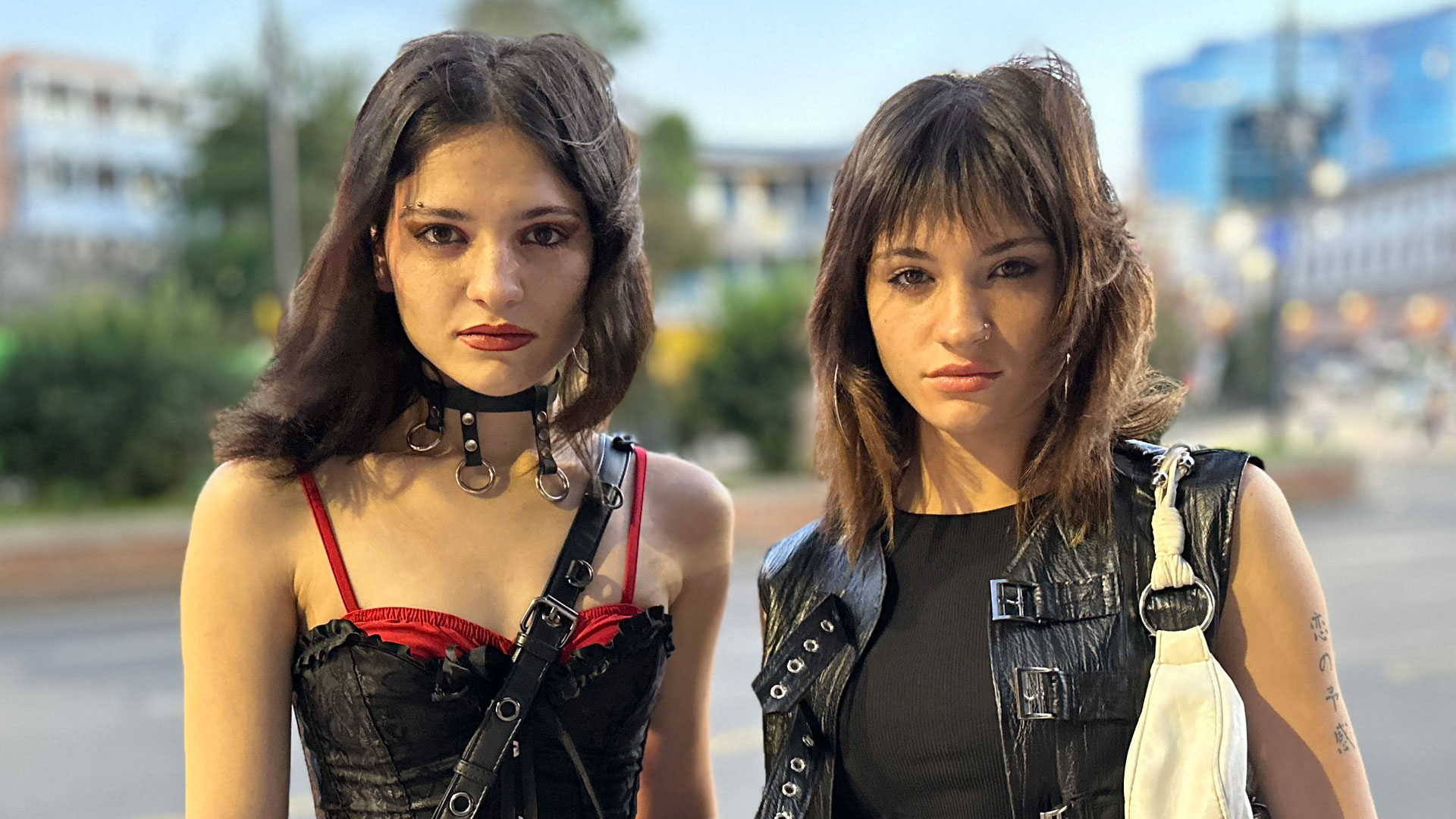
Amy and Ano are identical twins, but just after they were born they were taken from their mother and sold to separate families. Years later, they discovered each other by chance thanks to a TV talent show and a TikTok video. As they delved into their past, they realised they were among thousands of babies in Georgia were stolen from hospitals and sold, some as recently as 2005. Now they want answers.
Amy is pacing up and down in a hotel room in Leipzig. “I’m scared, really scared,” she says, fidgeting nervously. “I haven’t slept all week. This is my chance to finally get some answers about what happened to us.”
Her twin sister, Ano, sits in an armchair, watching TikTok videos on her phone. “This is the woman that could have sold us,” she says, rolling her eyes.
Ano admits she is nervous too, but only because she doesn’t know how she will react and if she will be able to control her anger.
It’s the end of a long journey. They have travelled from Georgia to Germany, in the hope of finding the missing piece of the puzzle. They are finally meeting their birth mother.
For the past two years they have been building a picture of what happened. As they unravelled the truth, they realised there were tens of thousands of other people in Georgia who had also been taken from hospitals as babies and sold over the decades. Despite official attempts to investigate what happened, nobody has been held to account yet.
The story of how Amy and Ano discovered each other starts when they were 12.
Amy Khvitia was at her godmother’s house near the Black Sea watching her favourite TV programme, Georgia’s Got Talent. There was a girl dancing the jive who looked exactly like her. Not just like her, in fact, identical.
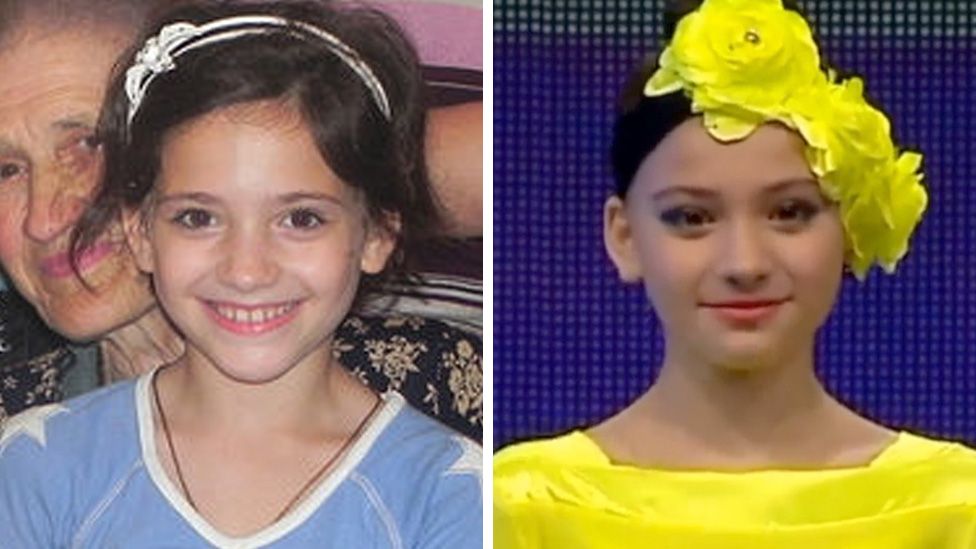
“Everyone was calling my mum and asking: ‘Why is Amy dancing under another name?’” she says.
Amy mentioned it to her family but they brushed it off. “Everyone has a doppelganger,” her mother said.
Seven years later, in November 2021, Amy posted a video of herself with blue hair getting her eyebrow pierced on TikTok.
Two hundred miles (320km) away in Tbilisi, another 19-year-old, Ano Sartania, was sent the video by a friend. She thought it was “cool that she looks like me”.
Ano tried to trace the girl with the pierced eyebrow online but couldn’t find her, so she shared the video on a university WhatsApp group to see if anyone could help. Someone who knew Amy saw the message and connected them on Facebook.
Amy instantly knew Ano was the girl she had seen all those years ago on Georgia’s Got Talent.
“I have been looking for you for so long!” she messaged. “Me too,” replied Ano.
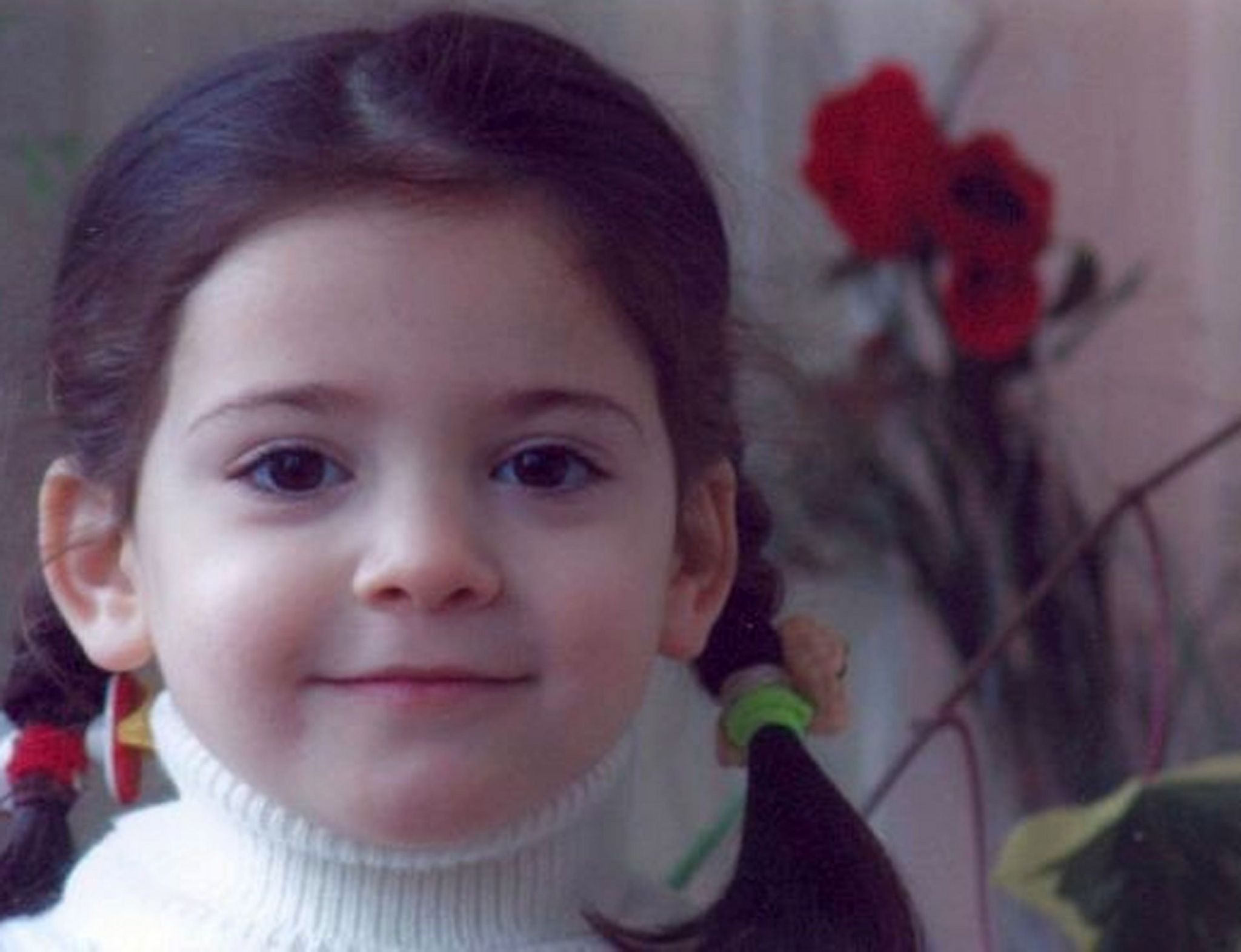
Over the next few days, they discovered they had a lot in common, but not all of it made sense.
They were both born in Kirtskhi maternity hospital – which no longer exists – in western Georgia but, according to their birth certificates, their birthdays were a couple of weeks apart.
They couldn’t be sisters, much less twins. But there were too many similarities.
They liked the same music, they both loved dancing and even had the same hairstyle. They discovered they had the same genetic disease, a bone disorder called dysplasia.
It felt like they were unravelling a mystery together. “Every time I learned something new about Ano, things got stranger,” says Amy.
They arranged to meet and a week later, as Amy approached the top of the escalator at Rustaveli metro station in Tbilisi, she and Ano saw each other in the flesh for the very first time.
“It was like looking in a mirror, the exact same face, exact same voice. I am her and she is me,” says Amy. She knew then that they were twins.
“I don’t like hugs, but I hugged her,” says Ano.
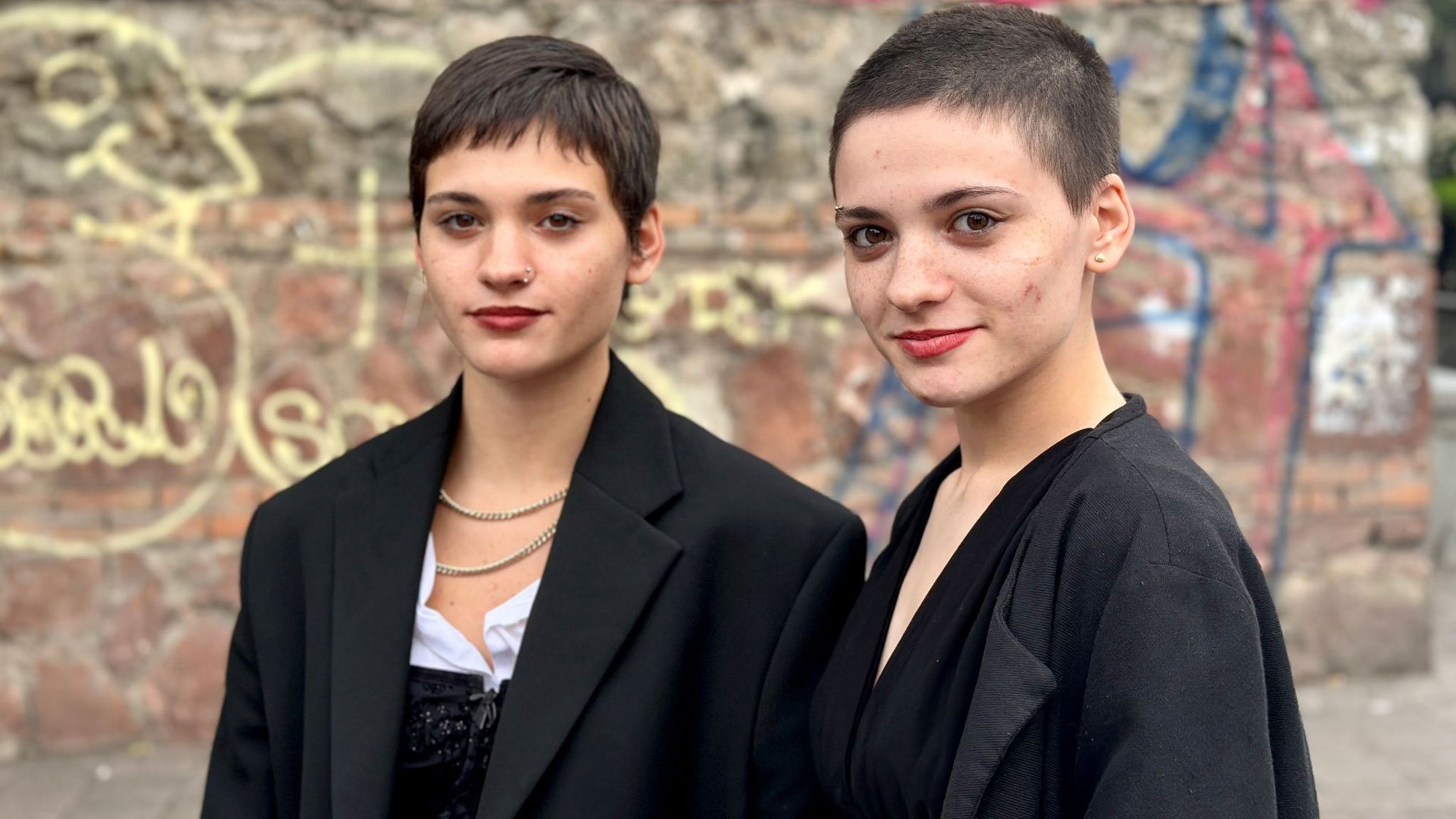
They decided to confront their families and for the first time they learned the truth. They had been adopted, separately, a few weeks apart in 2002.
Amy was upset and felt her whole life had been a lie. Dressed head to toe in black she looks tough, but she fiddles with her studded choker nervously and wipes a mascara-stained tear away from her cheek. “It’s a crazy story,” she says. “But it’s true.”
Ano was “angry and upset with my family, but I just wanted the difficult conversations to be over so that we could all move on”.
Digging deeper, the twins found the details on their official birth certificates, including the date they were born, were wrong.
Unable to have children, Amy’s mother says a friend told her there was an unwanted baby at the local hospital. She would need to pay the doctors but she could take her home and raise her as her own.
Ano’s mother was told the same story.
Neither of the adoptive families knew the girls were twins and despite paying a lot of money to adopt their daughters, they say they hadn’t realised it was illegal. Georgia was going through a period of turmoil and as hospital staff were involved they thought it was legitimate.
Neither family would reveal how much money was exchanged.
The twins couldn’t help wondering if their biological parents had sold them for profit.
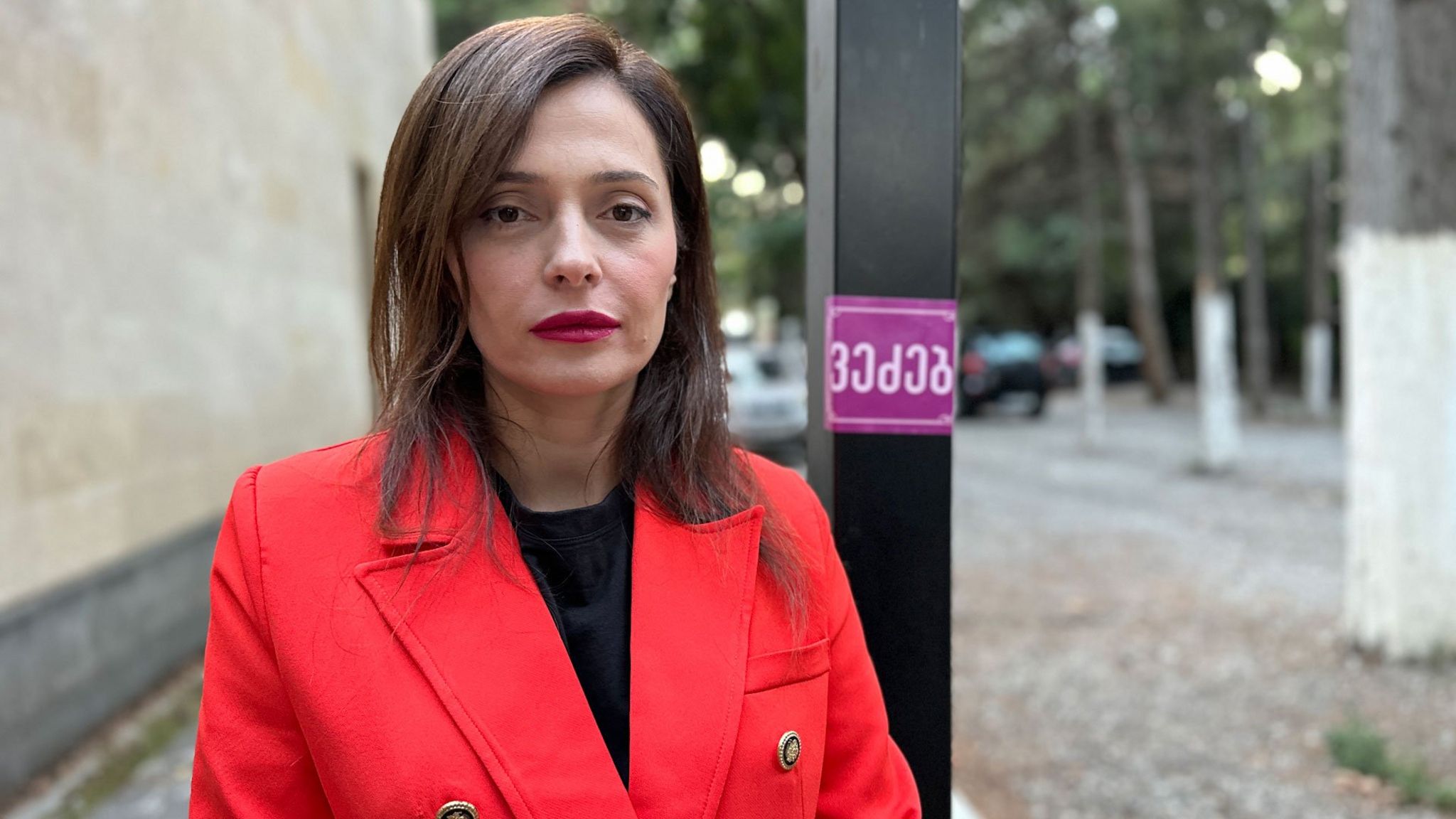
Amy wanted to search for their birth mother to find out, but Ano wasn’t sure. “Why do you want to meet the person that could have betrayed us?” she asked.
Amy found a Facebook group dedicated to reuniting Georgian families with children suspected to have been illegally adopted at birth and she shared their story.
A young woman in Germany replied, saying her mother had given birth to twin girls in Kirtskhi Maternity Hospital in 2002 and that despite being told they had died, she now had some doubts.
DNA tests revealed that the girl from the Facebook group was their sister, and was living with their birth mother, Aza, in Germany.
Amy was desperate to meet Aza, but Ano was more sceptical. “This is the person who could have sold you, she’s not going to tell you the truth,” she warned. Even so she agreed to go to Germany with Amy to support her.
The Facebook group the twins had used, Vedzeb, means “I’m searching” in Georgian. It has countless posts from mothers who say hospital staff told them their babies had died, but later discovered the deaths weren’t recorded and their children could still be alive.
Other posts are from children like Amy and Ano, looking for their birth parents.
The group has more than 230,000 members and, along with access to DNA websites, has blown wide open a dark chapter in Georgia’s history.
It was set up by journalist Tamuna Museridze in 2021 after she discovered she was adopted. She found her birth certificate with incorrect details when she was clearing out her late mother’s house.
She started the group to search for her own family, but the group has ended up exposing a baby trafficking scandal affecting tens of thousands of people, and spanning decades.
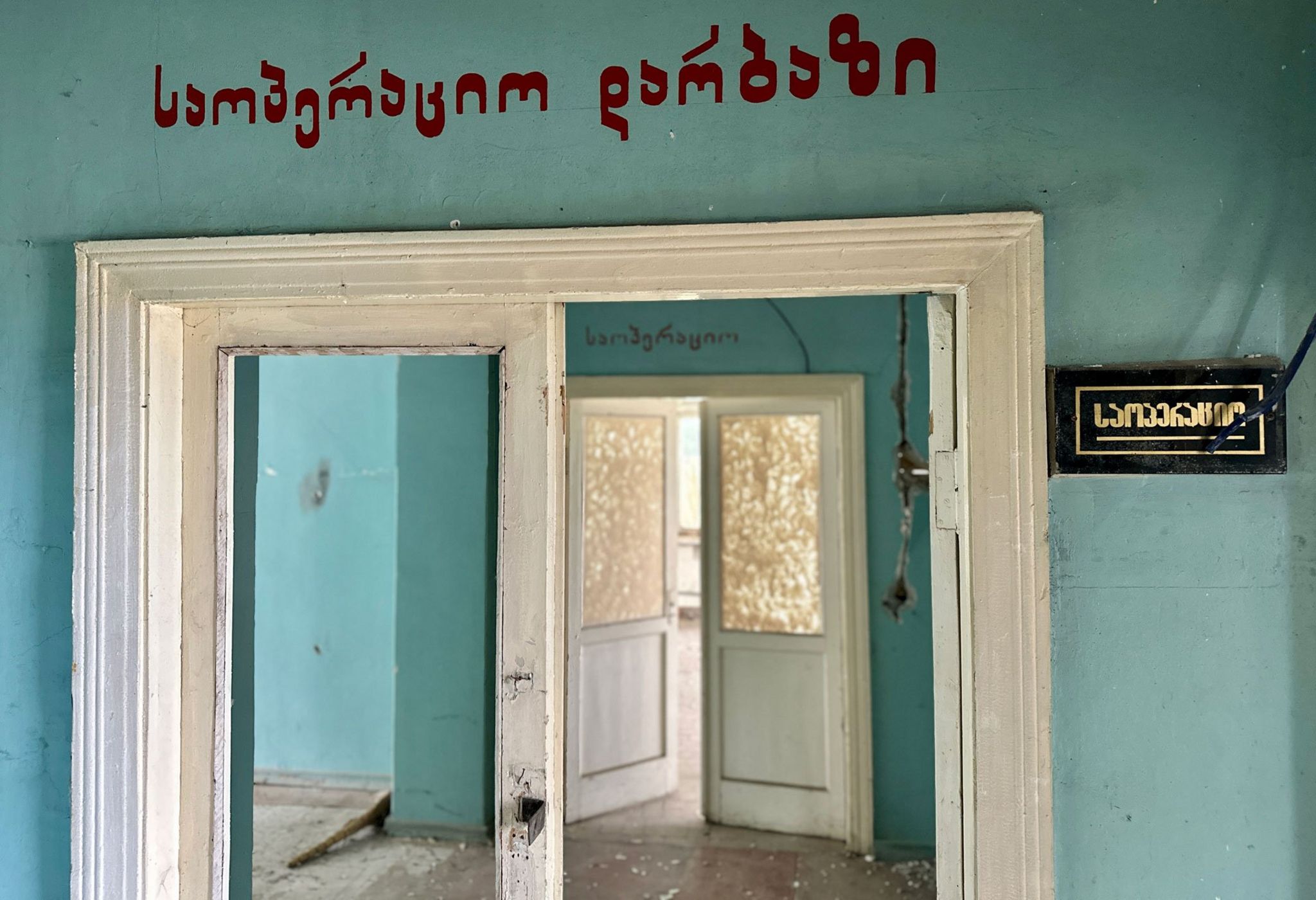
She has helped to reunite hundreds of families, but has not yet tracked down her own.
Tamuna discovered a black market in adoption that stretched across Georgia and went on from the early 1970s to 2006.
She believes it was run by organised criminals and involved people from all sections of society, from taxi drivers to people high up in the government. Corrupt officials would fake the documents needed for the illegal adoptions.
“The scale is unimaginable, up to 100,000 babies were stolen. It was systemic,” she says.
Tamuna explains that she calculated this figure by counting the number of people who have contacted her and combining that with the time frame and the nationwide spread of cases.
With a lack of access to documents – some have been lost and others aren’t being released – it is impossible to verify the exact figure.
Tamuna says many parents told her that when they asked to see the bodies of their dead babies they were told they had already been buried in the hospital grounds. She has since learned that cemeteries at Georgian hospitals never existed. In other cases parents would be shown dead babies who had been frozen in the mortuary.
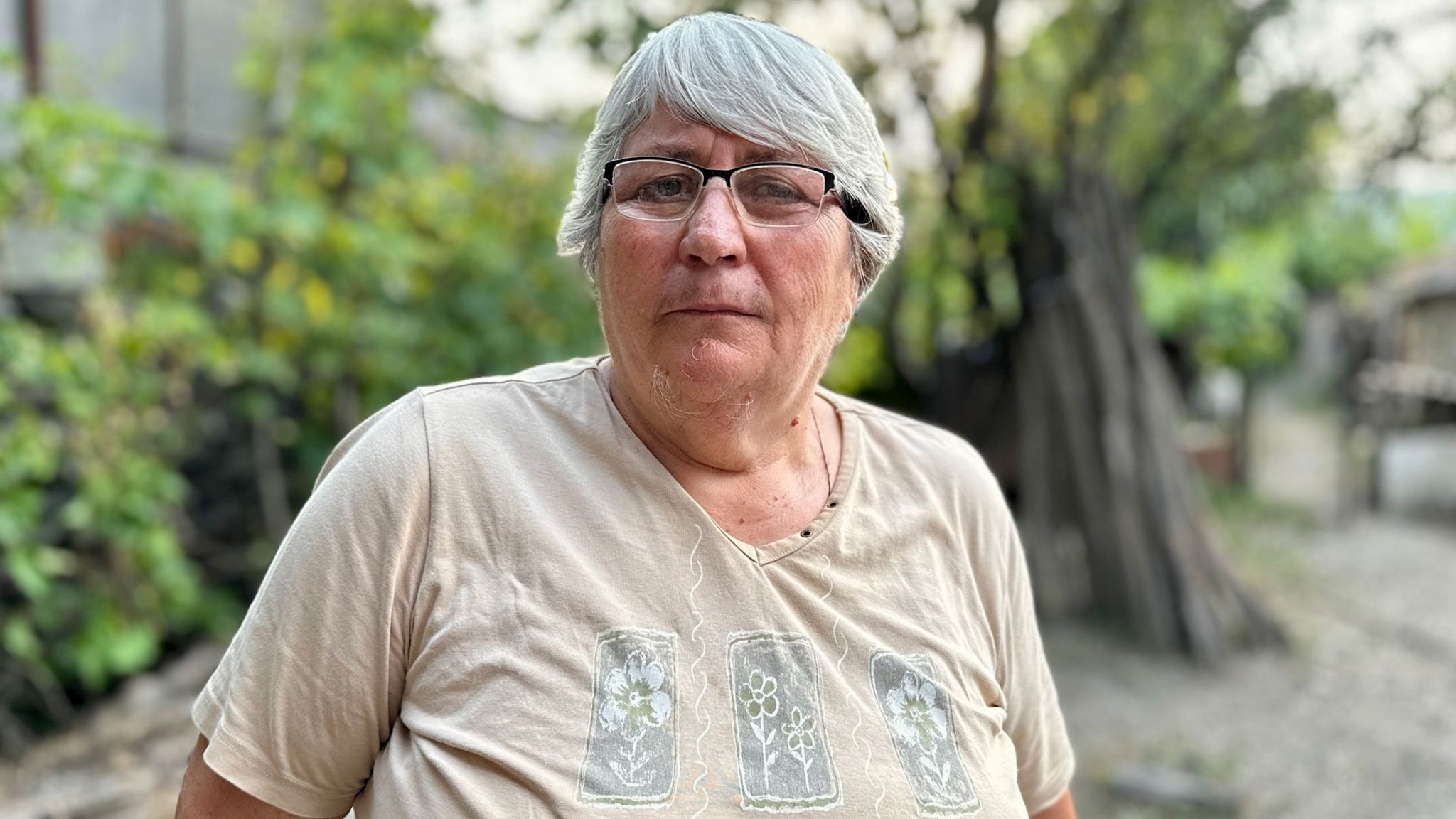
Tamuna says it was expensive to buy a child, about 1,000 maneti ($1,400; £1,100) for a girl and 1,500 maneti ($2,100; £1,600) for a boy – about a year’s salary in Georgia. She discovered that some children ended up with foreign families in the US, Canada, Cyprus, Russia and Ukraine.
In 2006 Georgia changed its adoption legislation and strengthened anti-trafficking laws, making illegal adoptions more difficult.
Another person looking for answers is Irina Otarashvili. She gave birth to twin boys in a maternity hospital in Kvareli, in the foothills of Georgia’s Caucasus mountains in 1978.
The doctors told her both boys were healthy but, for reasons that were never explained, they were kept away from her.
Three days after they were born, she was told they had both suddenly died. A doctor said they had respiratory problems.
Irina and her husband couldn’t make sense of it, but especially in Soviet times “you didn’t question authority” she says. She believed everything they said.
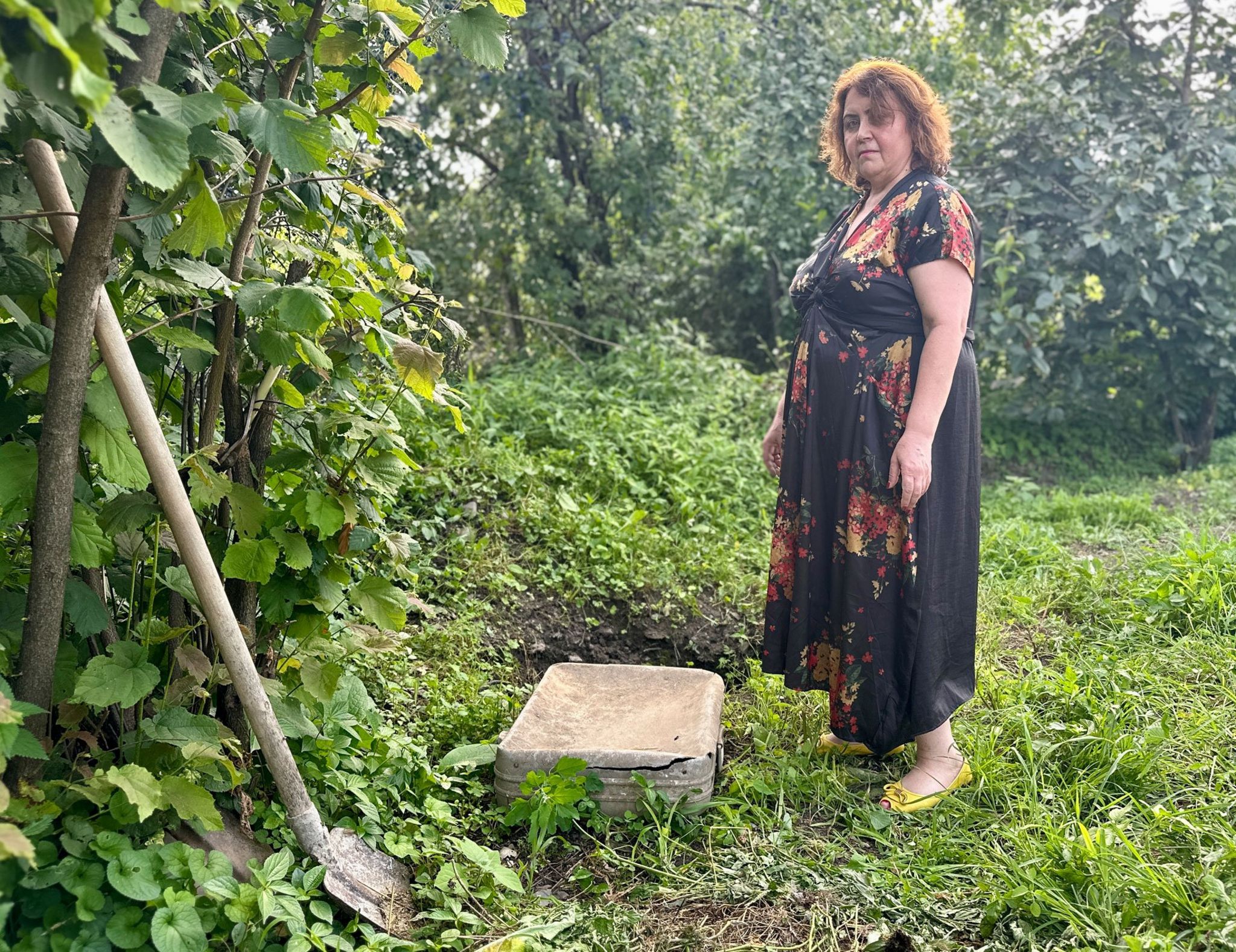
They were asked to bring a suitcase to take the infants’ remains away and to bury it in a cemetery or their back garden, as was common for babies at the time. The doctor told them never to open the case as it would be too upsetting to see the bodies.
Irina did as she was told, but 44 years later her daughter Nino found Tamuna’s Facebook group and grew suspicious.
“What if our brothers didn’t really die?” she wondered. Nino and her sister Nana decided to dig up the suitcase.
“My heart was racing,” she says. “When we opened it there were no bones, just sticks. We didn’t know whether to laugh or cry.”
She says local police confirmed the contents were branches from a grape vine and there was no trace of human remains.
She now believes her long-lost brothers could still be alive.
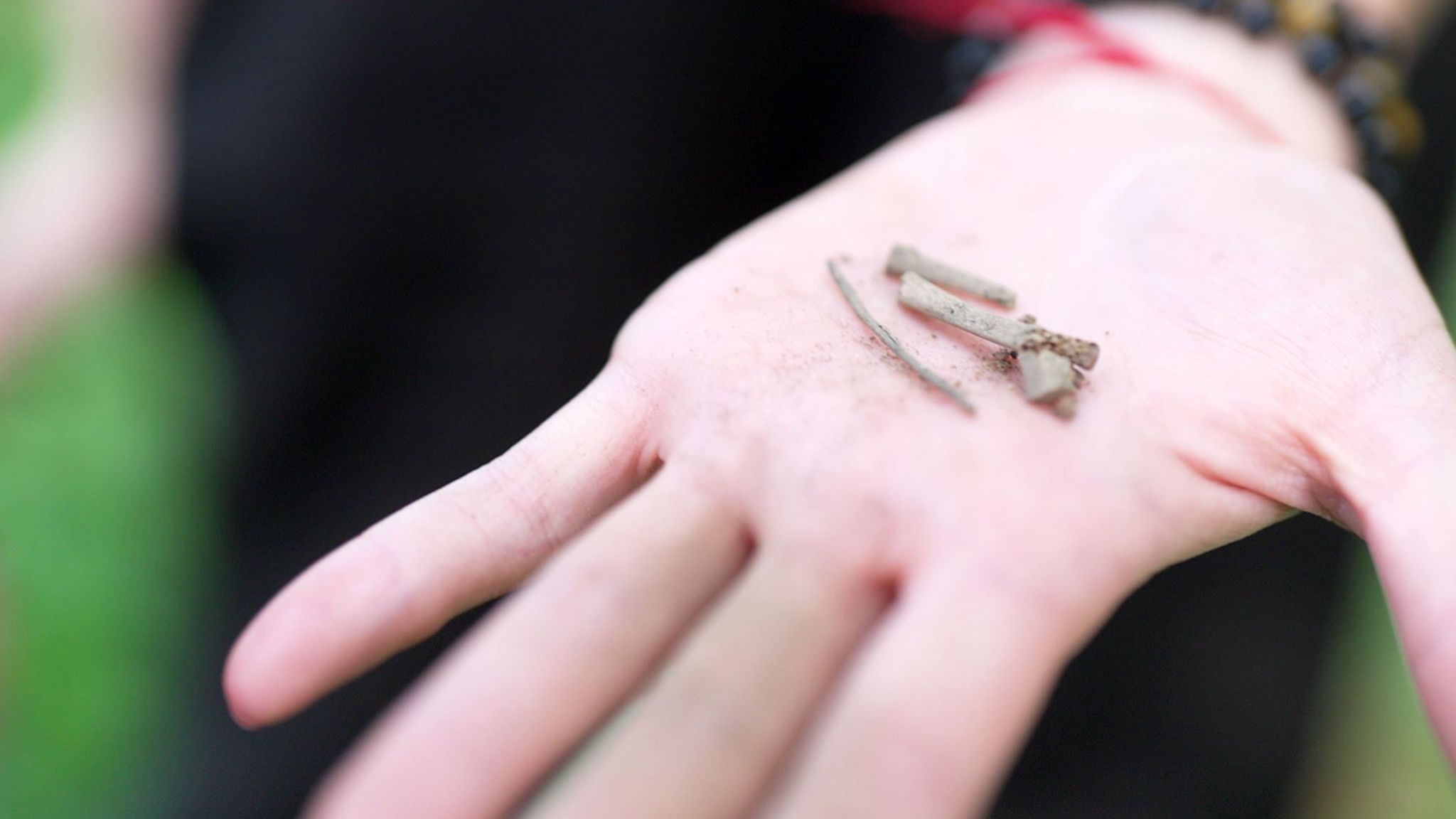
In the hotel in Leipzig, Amy and Ano prepare to meet their birth mother. Ano says she’s changed her mind and wants to back out. But it’s a momentary wobble and, taking a deep breath, she decides to go ahead.
Their biological mother, Aza, waits nervously in another room.
Amy opens the door hesitantly and Ano follows, almost pushing her sister into the room.
Aza lunges forward and embraces them tightly, one twin on each side. Minutes pass and locked in embrace, no-one speaks.
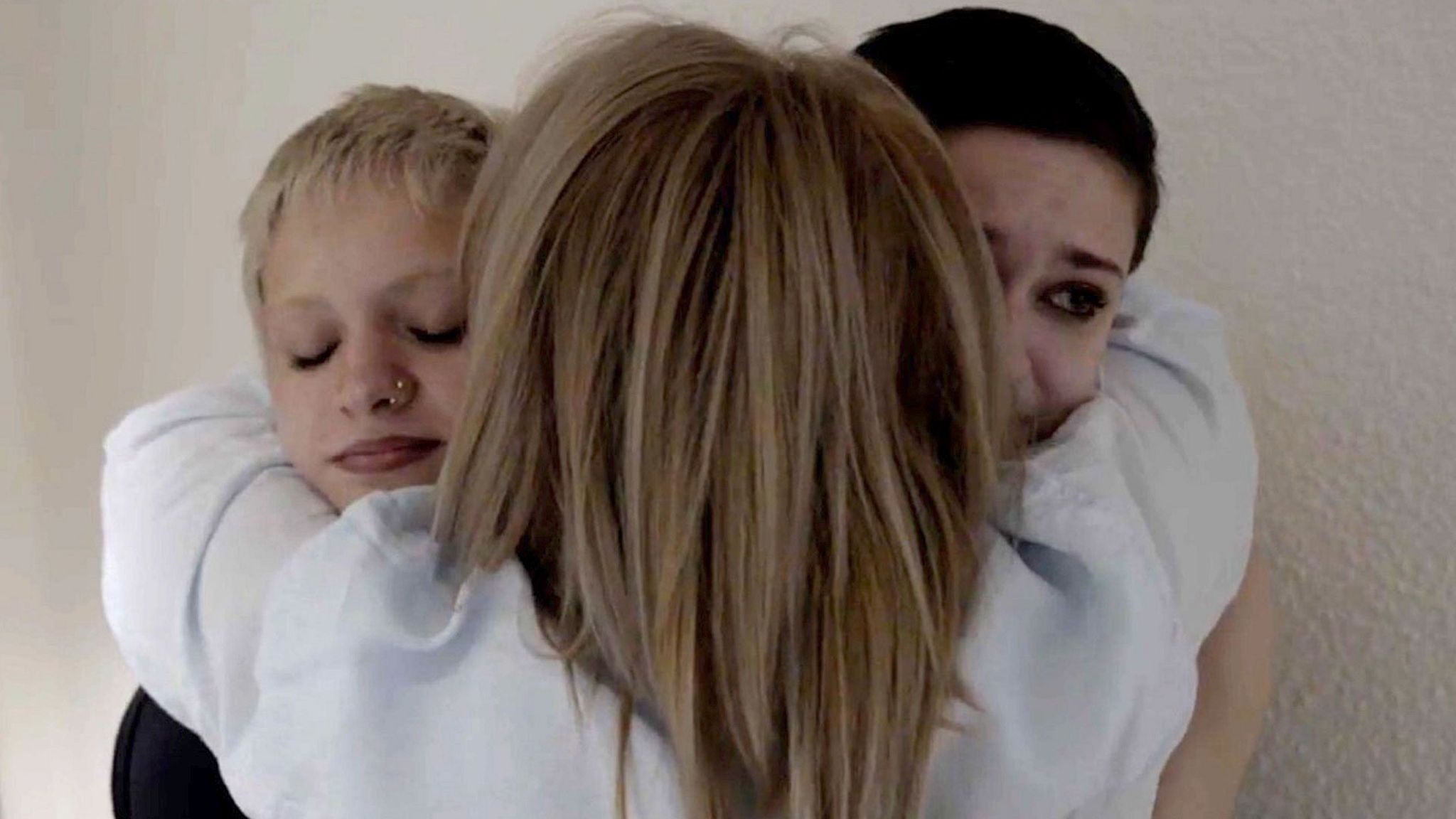
Tears stream down Amy’s face but Ano remains stoic and unwavering. She even looks a little irritated.
The three of them sit down to talk in private.
Later, the twins say that their mother explained she had been ill after giving birth and fell into a coma. When she awoke, hospital staff told her that shortly after the babies were born, they had died.
She said that meeting Amy and Ano has given her life new meaning. Although they are not close, they are still in touch.
In 2022, the Georgian government launched an investigation into historic child trafficking. It told the BBC it has spoken to more than 40 people but the cases were “very old and historic data has been lost”. Journalist Tamuna Museridze says she has shared information but the government hasn’t said when it will release its report.
It has made at least four attempts to get to the bottom of what happened. These include an investigation in 2003 into international child trafficking which led to a number of arrests but little information has been made public. And in 2015, after another investigation, Georgian media reported that the general director of the Rustavi maternity hospital, Aleksandre Baravkovi, was arrested but cleared and returned to work.
The BBC approached the Georgian Interior Ministry for further information on individual cases but we were told that specific details would not be released due to data protection.
Tamuna has now joined forces with human rights lawyer Lia Mukhashavria to take the cases of a group of victims to the Georgian courts. They want the right to access their birth documents – something not currently possible under Georgian law.
They hope that this will help lay ghosts to rest. “I always felt like there was something or someone missing in my life,” says Ano. “I used to dream about a little girl in black who would follow me around and ask me about my day.” That feeling disappeared when she found Amy.
© BBC News
Current Affairs
Ten dead as navy helicopters collide mid-air in Malaysia
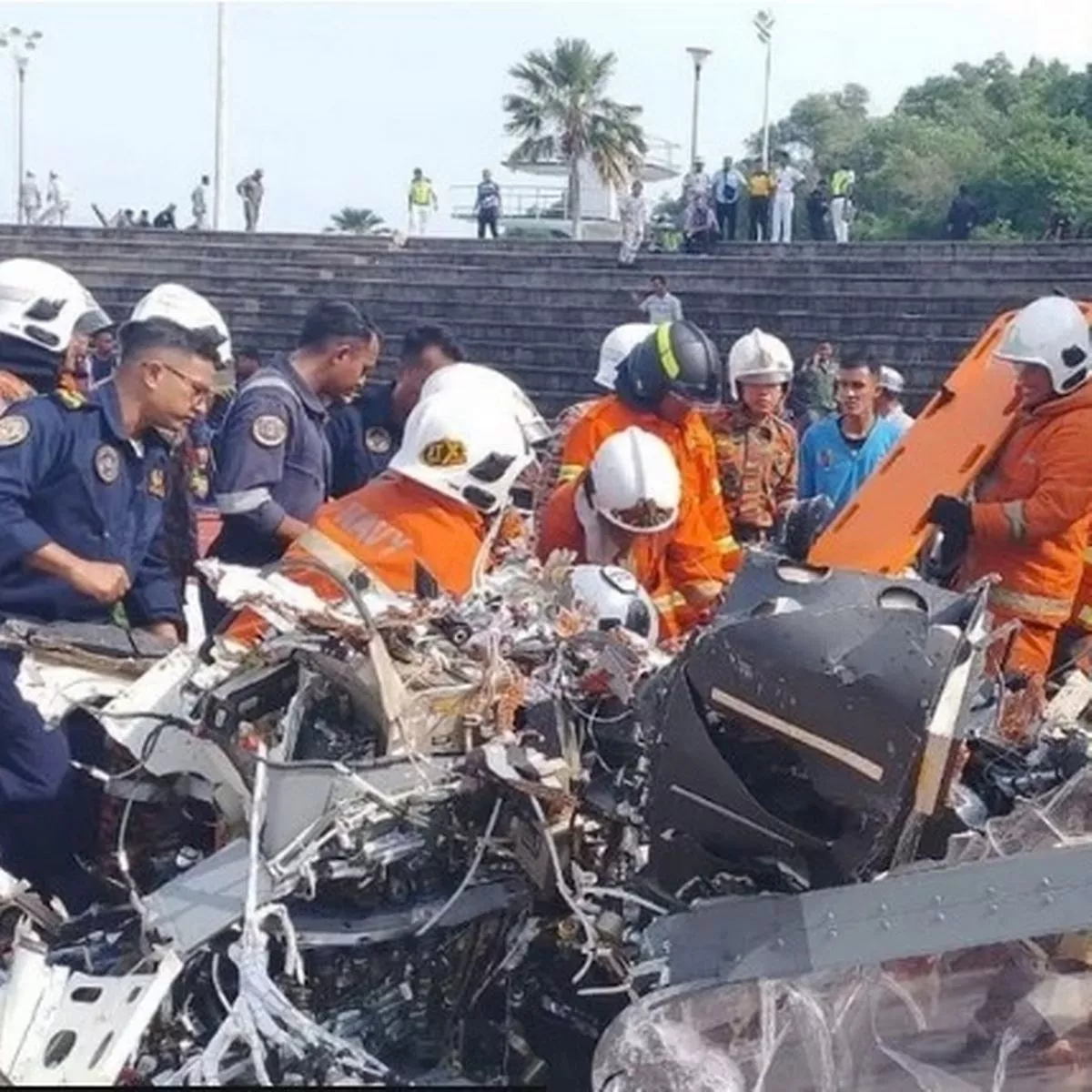
Two Malaysian navy helicopters collided in mid-air as they flew in formation during a rehearsal for a military parade, killing all 10 crew on board.
One of the aircraft clipped the rotor of the other before the two crashed into the ground, footage published on local media showed.
The incident took place at 09:30 local time (02:30 BST) in the Malaysian town of Lumut, which is home to a Royal Malaysian Navy base.
There are no known survivors.
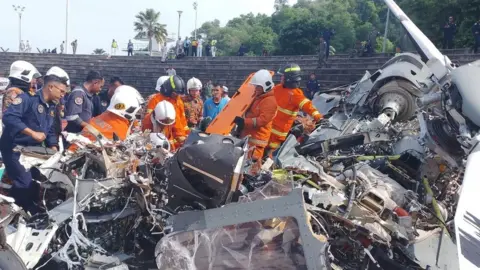 Perak Fire and Rescue DepartmentRescue personnel removing debris from the helicopter
Perak Fire and Rescue DepartmentRescue personnel removing debris from the helicopter
“All victims were confirmed dead on site and the remains were sent to the [Lumut] Military Hospital for identification,” said the Royal Malaysian Navy.
It added that it would form a committee to investigate the cause of the incident.
One of the helicopters, a HOM M503-3 with seven people on board, is believed to have crashed onto a running track.
The other, a Fennec M502-6 carrying the other three victims, crashed into a swimming pool nearby.
The state’s fire and rescue department said it was alerted to the incident at 09:50 local time (01:50 GMT).
Malaysia’s Prime Minister Anwar Ibrahim said in a post on X, formerly known as Twitter, that “the nation mourns the heart-wrenching and soul-wrenching tragedy”.
“Condolences to all the families of the victims and prayers for strength to face this calamity,” he said.
In March, a Malaysian coast guard helicopter crashed into the sea off Malaysia’s Angsa Island during a training flight.
The pilot, co-pilot and two passengers on board were found and rescued by fishermen.
© BBC News
Current Affairs
At least one dead after heavy rains set off flash floods in UAE
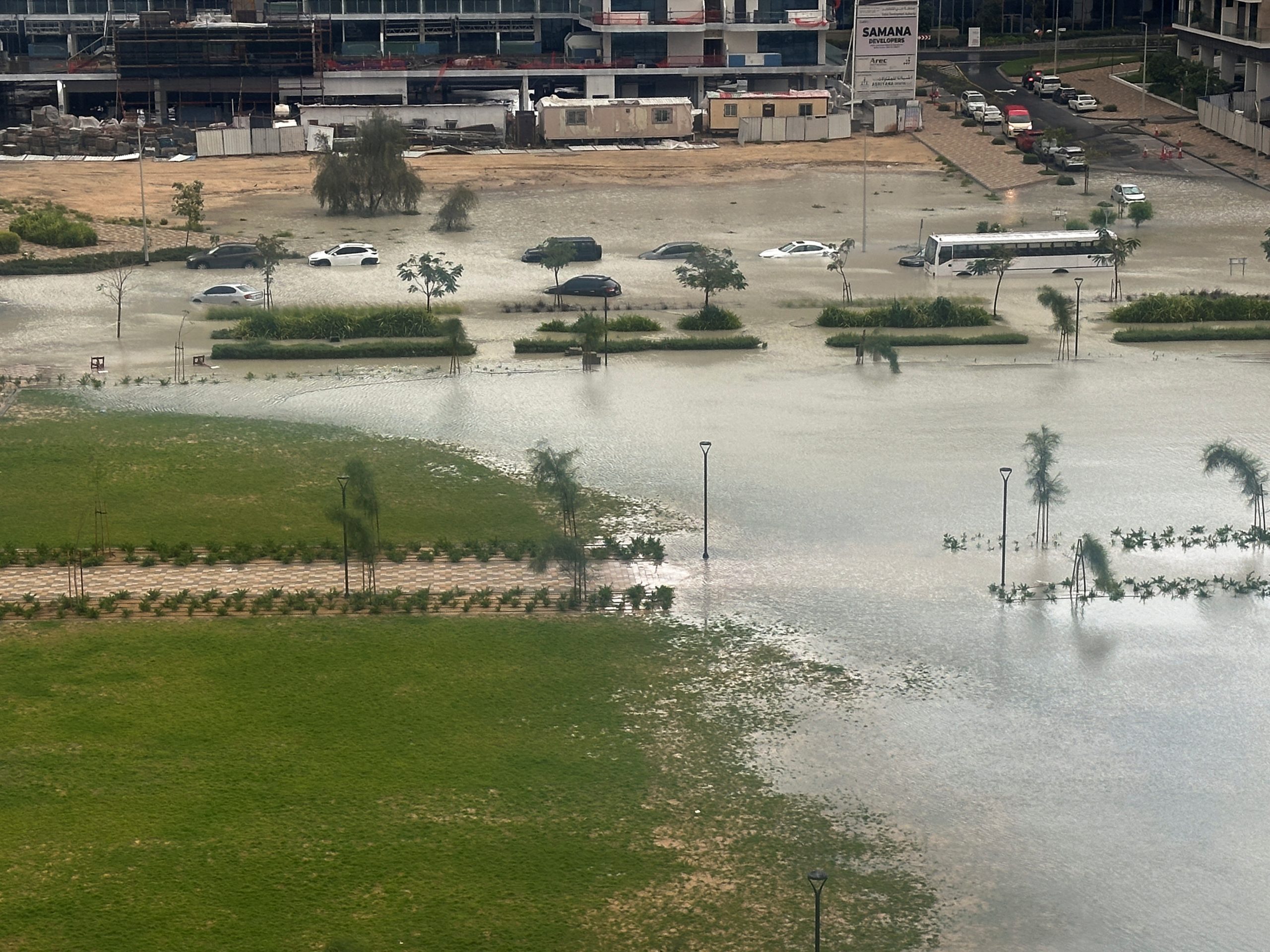
Authorities and communities across the United Arab Emirates were clearing debris on Wednesday after a torrential downpour killed at least one person and caused damage to homes and businesses.
The UAE witnessed a record rainfall with 254 mm falling in Al Ain on Tuesday in less than 24 hours, according to the national meteorology centre. That was the most since records began in 1949, before the country was established in 1971.
Although heavy rains had eased by late Tuesday, disruptions were continuing on Wednesday with Emirates airline suspending check-in for passengers departing Dubai airport until midnight.
Dubai International Airport, one of the world’s busiest, said it was facing significant disruptions after the heavy rains delayed or diverted flights and had impacted flight crews.
Passengers departing Dubai were advised against heading to the airport and to check their flight status with their airline.
“We are working hard to recover operations as quickly as possible in very challenging conditions,” the airport wrote on X.
Emirates said passengers who were already in transit would continue to be processed but warned that delays to departures and arrivals should be expected. The Dubai airport website showed hours-long delays for some arrival and departure flights.
Local media reported that an elderly Emirati man in his 70s died on Tuesday morning when his vehicle was caught in flash floods in the Ras Al Khaimah emirate, in the country’s north.
In neighbouring Oman, 19 people died, including school children after three consecutive days of heavy rain, according to Omani media, which published images of flooded communities.
The Times of Oman reported that more rain was expected on Wednesday. In Dubai, the skies were clear but in some areas the roads were quiet after the government ordered its employees and all schools to work remotely for a second consecutive day.
UAE media and social media posts showed significant damage from the torrential downpour in some parts of the country, including collapsed roads and homes inundated by water.
Social media posts on Tuesday showed flooded roads and car parks with some vehicles completely submerged. Sheikh Zayed Road, a 12-lane highway through Dubai, was partially flooded, leaving people stuck in a kilometres-long traffic jam for hours.
© Reuters
Current Affairs
Taiwan: Rescue efforts continue after earthquake
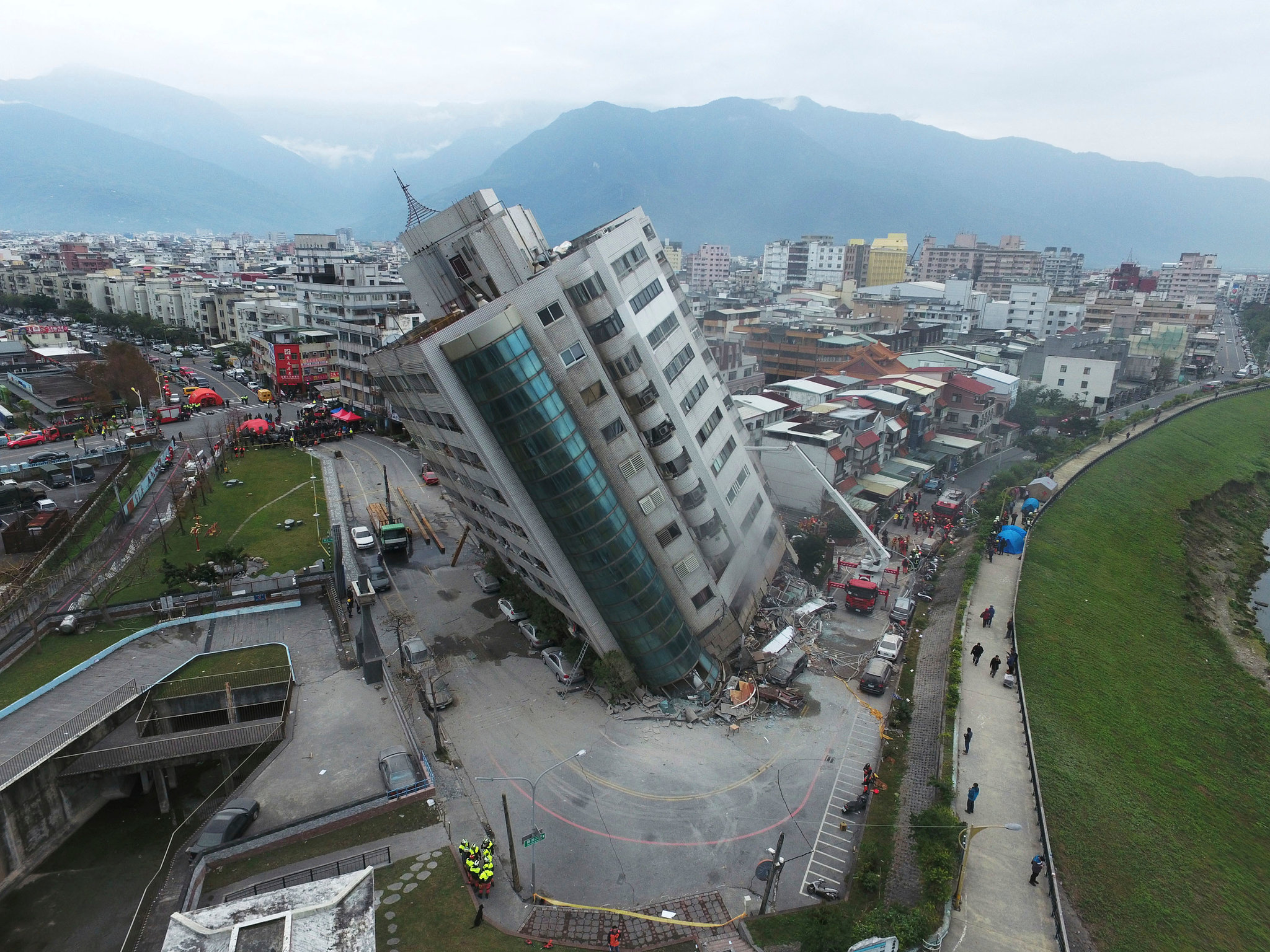
Rescue efforts are taking place in Taiwan after a powerful earthquake struck off its east coast on Wednesday, killing at least four people.
The 7.4 magnitude quake caused multiple buildings to collapse in Hualien, the city closest to the epicentre.
The strongest tremor to hit the island in 25 years was also felt as far as Taiwan’s mountainous interior, which was rocked by huge landslides.
In the capital Taipei, footage showed buildings shaking violently.
“The earthquake is close to land and it’s shallow. It’s felt all over Taiwan and offshore islands… It’s the strongest in 25 years,” said Wu Chien Fu, the director of Taipei’s Seismology Centre.
The National Fire Agency said three have died at a trail around Taroko National Park, named after a landmark gorge just outside Hualien.
More than 50 people have been injured, with some trapped in buildings and tunnels around the city, the agency added.
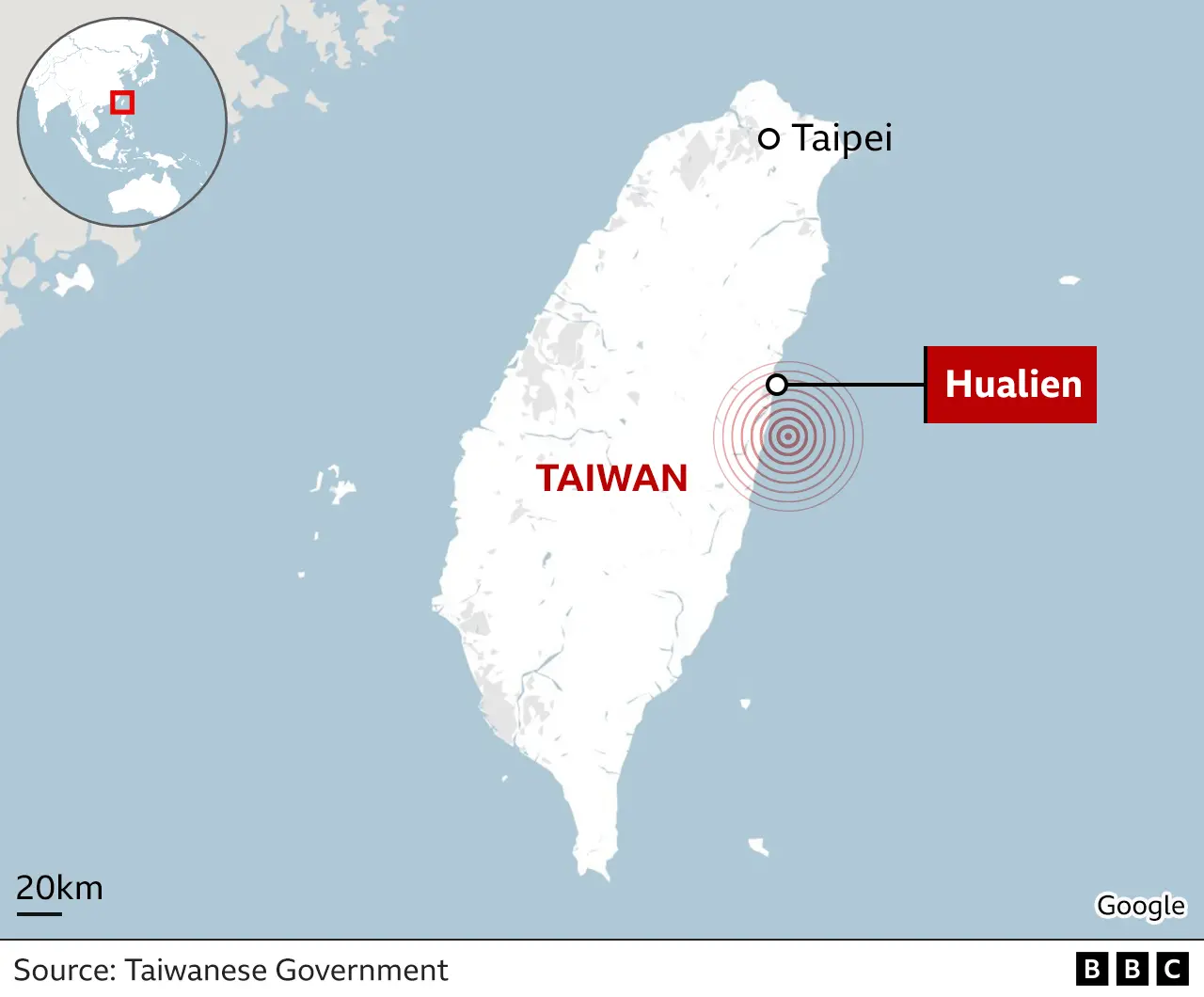
Taiwanese chipmaking giant TSMC said it has evacuated some of its factories in Hsinchu and southern Taiwan for its staff’s safety, but it added that its safety systems are operating normally. TSMC is a major producer of semiconductors for tech firms including Apple and Nvidia.
Apple supplier Foxconn did not immediately respond to BBC’s request for comment.
Earlier, the earthquake set off tsunami warnings on the island and its neighbouring countries.
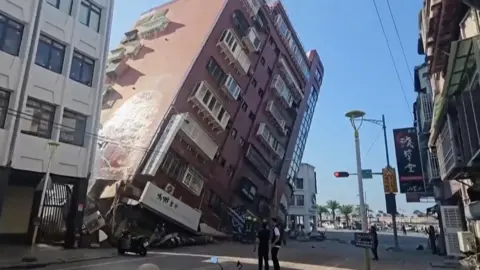 TVBSA partially collapsed building in Hualien city
TVBSA partially collapsed building in Hualien city
In Taipei, footage on local media outlets show collapsed residential buildings and people being evacuated from their homes and schools. The impact of the earthquake has also smashed vehicles and thrown items inside stores in disarray, according to clips aired by local broadcaster TVBS.
Power cuts and internet outages have been reported across the island, according to internet monitoring group NetBlocks.
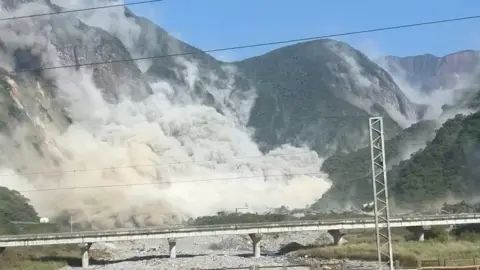 Reuters: The earthquake has unleashed landslides in Taiwan’s very mountainous interior
Reuters: The earthquake has unleashed landslides in Taiwan’s very mountainous interior
Wednesday’s earthquake hit at 07:58 local time (23:58 GMT) at a depth of 15.5km and has set off at least nine aftershocks at magnitude 4 or larger. The earthquake’s epicentre is located about 18km (11 miles) south of Hualien, according to the US Geological Survey.
Hualien is located on Taiwan’s east coast, in a sprawling, mountainous region. Cities in the area are sparsely populated. With major roads and rail lines connecting Hualien to the rest of Taiwan now down, rescue teams will likely have to enter the area by air.
In September 1999, a 7.6-magnitude earthquake hit Taiwan, killing 2,400 people and destroying 5,000 buildings.
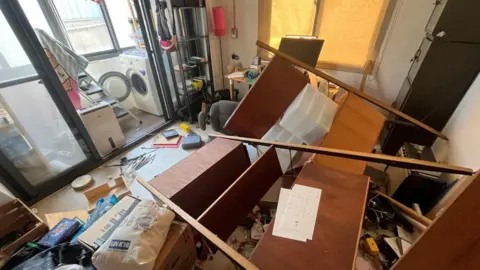 Reuters: Inside an apartment building in New Taipei City
Reuters: Inside an apartment building in New Taipei City
In neighbouring Japan, authorities had earlier warned that tsunami waves of up to 3m were expected to reach large areas of its southwestern coast.
The Japan Meteorological Agency agency later downgraded the warning, but has asked residents to remain “vigilant for aftershocks with similar intensity” for about a week.
The Philippines’ seismology agency also issued a tsunami warning shortly after the quake hit, urging residents to evacuate to higher ground – which it later cancelled.
The Pacific Tsunami Warning Center said in an update about two hours after the quake hit that the tsunami threat “has now passed”.
Chinese state media said tremors were felt in parts of China’s south-eastern Fujian province.
© BBC News
Current Affairs
James Crumbley: Father of Michigan school gunman convicted of manslaughter
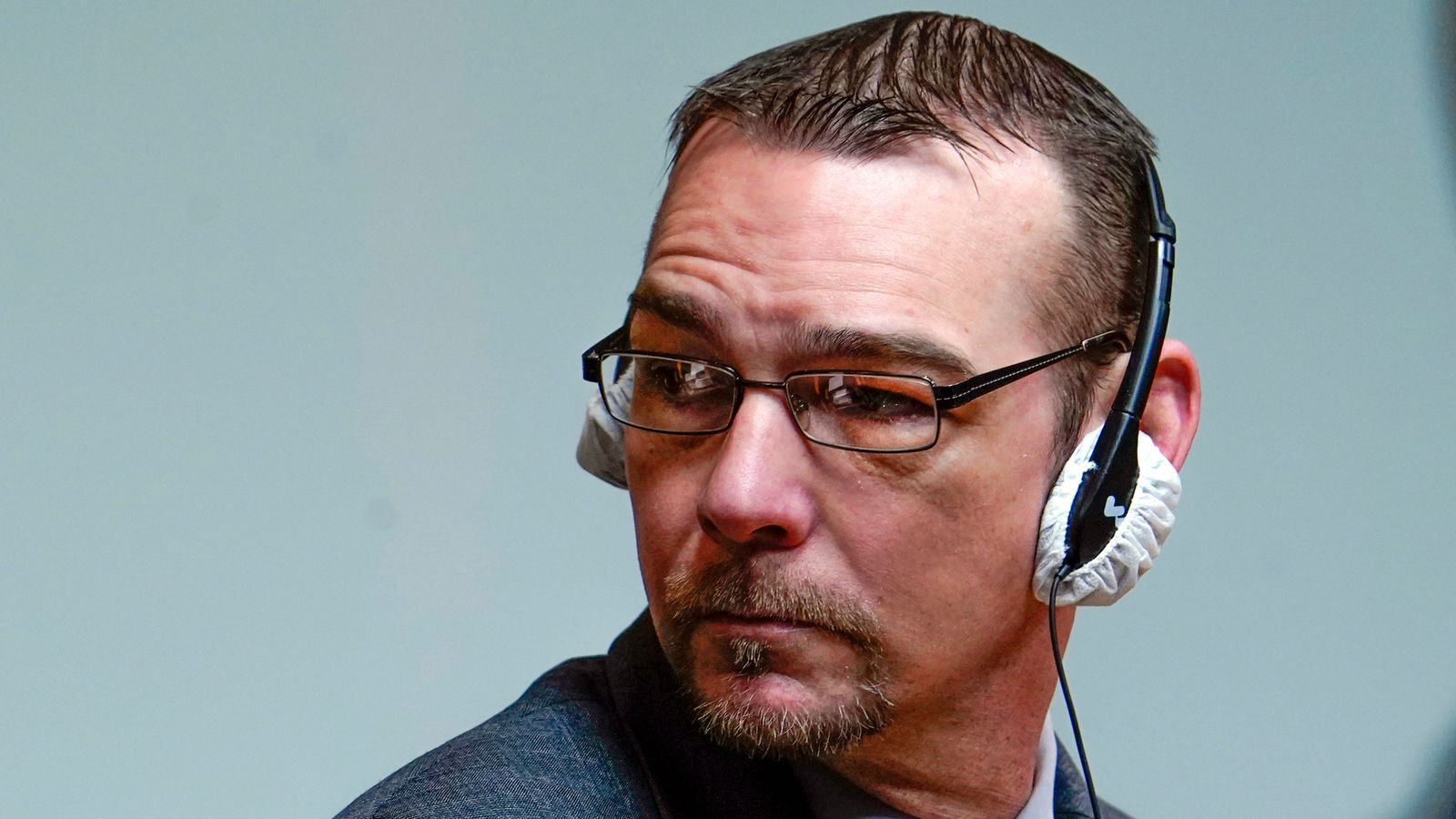
The father of a Michigan school gunman who killed four students has been convicted of manslaughter.
The trial heard that James Crumbley, 47, had ignored his 15-year-old son’s mental health needs, buying him the handgun he used in the November 2021 attack.
The jury deliberated for just over a day before coming to the verdict.
Jennifer Crumbley, his wife, is due to be sentenced next month after being convicted on the same charges.
James Crumbley was in court on Thursday evening for the verdict and appeared to show little reaction as it was read out.
The case against the Crumbleys marks the first time parents have been charged with manslaughter over their child’s role in a shooting in the US.
Their son, Ethan, killed fellow students Tate Myre, 16; Hana St Juliana, 14; Madisyn Baldwin, 17, and Justin Shilling, 17. Seven people were also injured in the shooting.
He is serving a sentence of life in prison without parole.
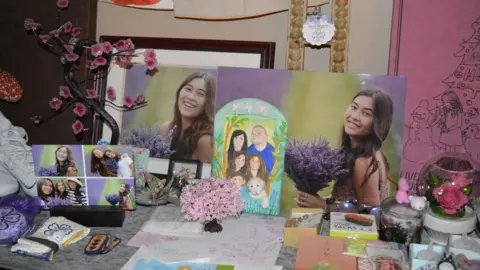
Steve and Ai St Juliana lost their 14-year-old daughter Hana, who they said was kind and always checked in on others
Steve St Juliana, Hana’s father, said on Thursday evening that the prosecution of the Crumbleys was “just the beginning steps” when it came to dealing with gun violence in the US.
“Our children are dying on a daily basis in mass murders and we do very little about this,” he added.
“We can put people on the Moon, we can build skyscrapers, huge monuments like the Hoover Dam and we can’t keep our kids safe in schools.”
In February he told the BBC that “every day without [Hana] is a struggle”.
“She was always laughing, always causing people to laugh,” he recalled.
Prosecutor Karen McDonald, speaking at a press conference with parents of the four victims, said the verdict “does not bring back their children but it does mark a moment of accountability”.
“These parents [the Crumbleys] could have prevented this tragedy with just the smallest of efforts,” she said.
Earlier this week in her closing arguments to the jury of six men and six women, Ms McDonald called the attack at the Oxford High School “preventable and foreseeable”.
She added that James Crumbley’s actions had been “rare and egregious”.
He did not take even the slightest measures to ensure his son was not a threat after giving him a semi-automatic pistol as a gift, said the prosecutor.
Prosecutors also said the Crumbleys had not done enough to address their son’s declining mental health.
On the morning of the shooting, the two parents cut short a school meeting about a disturbing drawing their son had made to go to work and had declined to take him home.
School officials sent him back to class without checking his backpack, which contained a gun.
When Crumbley heard about the shooting, he rushed home from his job as a DoorDash delivery driver, looking for the weapon, the trial heard.
Crumbley’s defence lawyer, Mariell Lehman, argued that “James had no idea that his son was having a hard time”.
Crumbley did not testify, unlike his wife, who took the stand during her trial and tried to blame her husband.
Jennifer Crumbley and her husband bought the 9mm Sig Sauer pistol their son used just days before the shooting.
Prosecutors said the Crumbleys had also failed to ensure the weapon was safely stored.
“Parents and gun owners have a responsibility to prevent children from accessing deadly weapons,” said Nick Suplina, with the advocacy group Everytown for Gun Safety, in a statement, adding the verdict “further underscores this critical duty of responsible gun ownership”.
The Crumbleys were charged by police within days of the killings.
Initially, the parents were supposed to be tried together but in November sought separate trials.
Both are scheduled to be sentenced on 9 April. A count of manslaughter carries a penalty of up to 15 years.
© BBC News










You must be logged in to post a comment Login